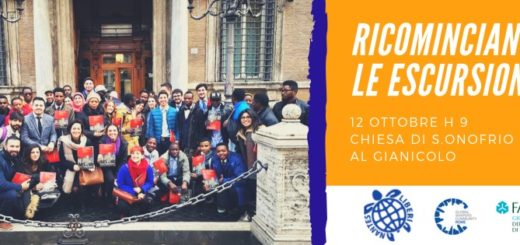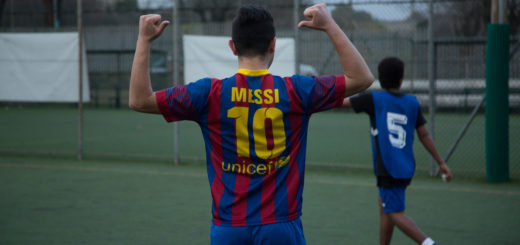When sport transcends boundaries: from Ius Soli in sport to the Rio Olympics
Whoever lives sport either as a participant or a spectator is used to rooting for a team colour or following a flag. But the beauty of sport that it is simultaneously both this and its opposite.
Sport can overcome imposed limits and eliminate them, defending the principle of equality until it becomes an inalienable right.
And so, in this historic moment when the figure of the refugee, of the forced migrant who becomes a foreigner when reaching a land so far from his/her birthplace, is trying to emerge from indifference, it is sport that is giving a strong signal in recognising and giving back a dignity that is without nationality.
In Italy, the Senate has approved with almost unanimity a Bill to introduce Sporting Ius Soli¹, a measure that from today allows sports clubs to enrol, from the age of 10, foreign minors who are resident in Italy.
The importance of this law is clear in the words of a Member of Parliament who has experienced competitive activity personally, Valentina Vezzali, the most decorated Italian athlete of all time: “This is further confirmation of how sport can be an exceptional instrument of social integration. The approval of the Bill underlines the importance of sport and of sporting activity as a cornerstone of a civilised society which is open to others and which breaks down frontiers and mental barriers.”
Elsewhere, the president of the International Olympic Committee (IOC), Thomas Bach, has announced that the next summer Olympics will be open to refugees as a sign of hope and to make the world aware of a global crisis which affects 60 million people.
Until now, refugees have not been admitted as they did not represent a country. “Having no national team to be part of, having no flag to march behind, no anthem to sing in victory, these athletes will be welcome at the Games behind the Olympic flag and with the Olympic anthem,” Bach said. He added: “Everybody is equal, regardless of their race, sex, social status, culture or religion. The Olympics are the apex of this vision and of the principle of non-discrimination.”
These are words in which we recognise ourselves and which fill us with hope. With the wish that this is merely the beginning.
¹Footnote: Ius soli means ‘right of the soil’. It is the right of anyone born in the territory of a state to nationality or citizenship. Italian law is based on the principle of Ius sanguinis, with citizenship acquired through bloodlines rather than birth. At present, non-citizens born in Italy can apply for citizenship at the age of 18 if they have lived in the country continuously all their life. There are proposals for a new law (beyond just sport) under which children born to foreign parents can become citizens earlier and more easily if at least one parent has a long-term residency permit.
[English translation by Frank Dunne]



